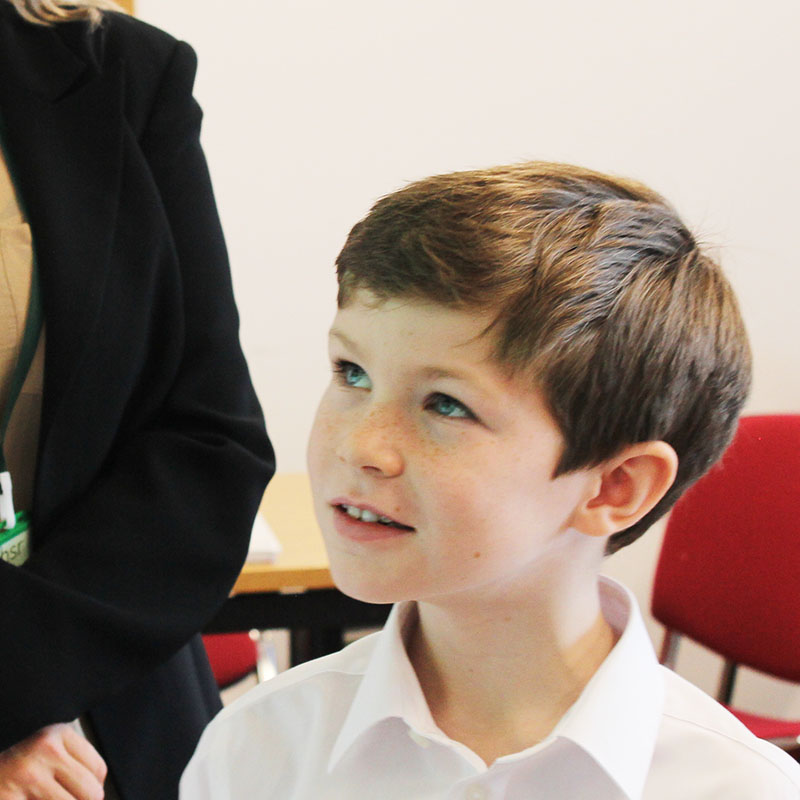

At HSR Psychology, children and young adults aged 25 or under could be suitable for an anxiety management intervention.
Those suitable for anxiety management interventions are young people who:
If you are interested in finding out how an anxiety management intervention could have benefits for you or people in your life, please contact us to speak to a member of our team.
Anxiety management interventions bring many benefits to the child or young person, including:
Following an anxiety management intervention we will provide you with recommendations for giving continuing support to the young person. Recommendations can be of use when helping the young person to maintain control of their anxiety.
Anxiety management interventions can be set up following an initial discussion. Read about our process below.
During an anxiety management intervention with HSR Psychology, young people will be able to express any anxieties they have in a safe environment. The individual will learn about what anxiety is and what strategies can be used to reduce anxious feelings.The HSR Psychology professional will encourage the individual to implement the coping strategies into their lifestyle in order to manage their anxiety. Following this, the young individual will be asked to reflect on the effectiveness of these anxiety management techniques until we identify which techniques work best. Once we have identified which techniques work best we can create an anxiety management plan which would outline how to use coping techniques in daily life e.g. how to prepare for an anxious situation. We also provide exposure therapy which can be used to face anxiety provoking situations.
After an anxiety management intervention the individual will be able to recognise and address their anxiety effectively. Following an anxiety management intervention it may be suggested that we carry out follow up sessions to review the individual’s anxiety management plan and adjust, if required. We can also provide training on anxiety management to parents and/or staff in education settings. Outcomes from an anxiety management intervention can be explained in a feedback session, or alternatively in a written report if needed.
We always recommend a report after an intervention, which will include what occurred, the influence of our involvement and appropriate recommendations for the future. A report from an anxiety management intervention can be used for many reasons, such as: personal use, medical use, school use, support with an application, funding and support, or evidence for a different reason. If you do not require a written report then verbal feedback from an anxiety management intervention can be provided along with a brief summary. Read about our reports here.

One of the sixth-forms we work in, noticed that a number of students were really struggling with anxiety in relation to their exams. We provided five individual interventions to provide students with strategies to manage their anxiety. Find out how we helped.
HSR Psychology were contacted by a sixth-form, where they identified five students who were anxious and the school wanted to get them input and support. Their aim was to help these students to be less anxious and improve their mental health.
Our process included five sessions over a five week period. During the first session, the focus was on building a good therapeutic relationship with the students. This was done by discussing topics such as what the students like or dislike and what they think they are good at or what they would like to improve. We also provided some psychoeducation work, including theories such as the ‘Fight, Flight, Freeze responses’ and Maslow’s pyramid of needs.Our intention was to teach the students about how the brain works and develops so they could better understand their own.
The following four sessions were all modified to fit the students’ needs the most, but they all included relaxation techniques for instance, breathing techniques, muscle relaxation and visualisation. Each session also had discussions about unhealthy thinking traps, for example zooming in on the negative, and cycles. After each week, the assistant psychologist and student together reviewed what made the student anxious and how they used the techniques in difficult situations. They also reflected on how the techniques mentioned above worked out. After each session, the students received homework tasks, where they were asked to try to keep track of things that made them anxious and try the techniques at home. Reflection is a helpful tool to enhance self-awareness and helps to identify the thoughts and situations that trigger anxiety.
When our involvement started, all of the students had experienced anxiety. By the end of our input, the students reported that they experienced less anxiety and more confidence. The improvement was caused by an increased understanding of their needs, learning techniques to fight feelings of anxiety and recognising anxiety-provoking situations. The teachers reported that the students showed decreased anxiety following our input.
Arrange an initial discussion to find out how we can benefit your education setting. The initial discussion lasts 2 hours and is a starting point to identify needs. The cost is £260.
only
£260
Ready to get started? The next step is to speak to our team to find out more about the services we provide and how we can help. Call us on 0161 820 9229 or email office@hsrpsychology.co.uk